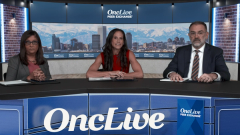
Treatment Strategies Using Monoclonal Antibodies in AL Amyloidosis
Jeffrey Zonder, MD, provides an overview of treatment strategies using monoclonal antibodies for the treatment of AL amyloidosis.
Episodes in this series

This is a video synopsis/summary of a Peer Exchange involving Heather Landau, MD; Vaishali Sanchorawala, MD; and Jeffrey Zonder, MD.
Panelists discuss the use of monoclonal antibodies in light chain (AL) amyloidosis, emphasizing the transformative impact of the ANDROMEDA trial. Anti-CD38 antibodies, both in combination with chemotherapy and as single agents in relapse, exhibit impressive response rates that exceed those in multiple myeloma. Data on isatuximab and elotuzumab also show promise, with potential later-line use. Belantamab mafodotin, a B-cell maturation antigen–directed antibody, reveals high response rates but comes with ocular toxicity challenges.
This discussion introduces the concept of antibodies targeting protein fibrils and highlights the evolving treatment landscape and promising avenues with monoclonal antibodies, particularly anti-CD38 antibodies, which offer new possibilities for improved therapeutic outcomes in AL amyloidosis.
Video synopsis is AI-generated and reviewed by OncLive® editorial staff.



































